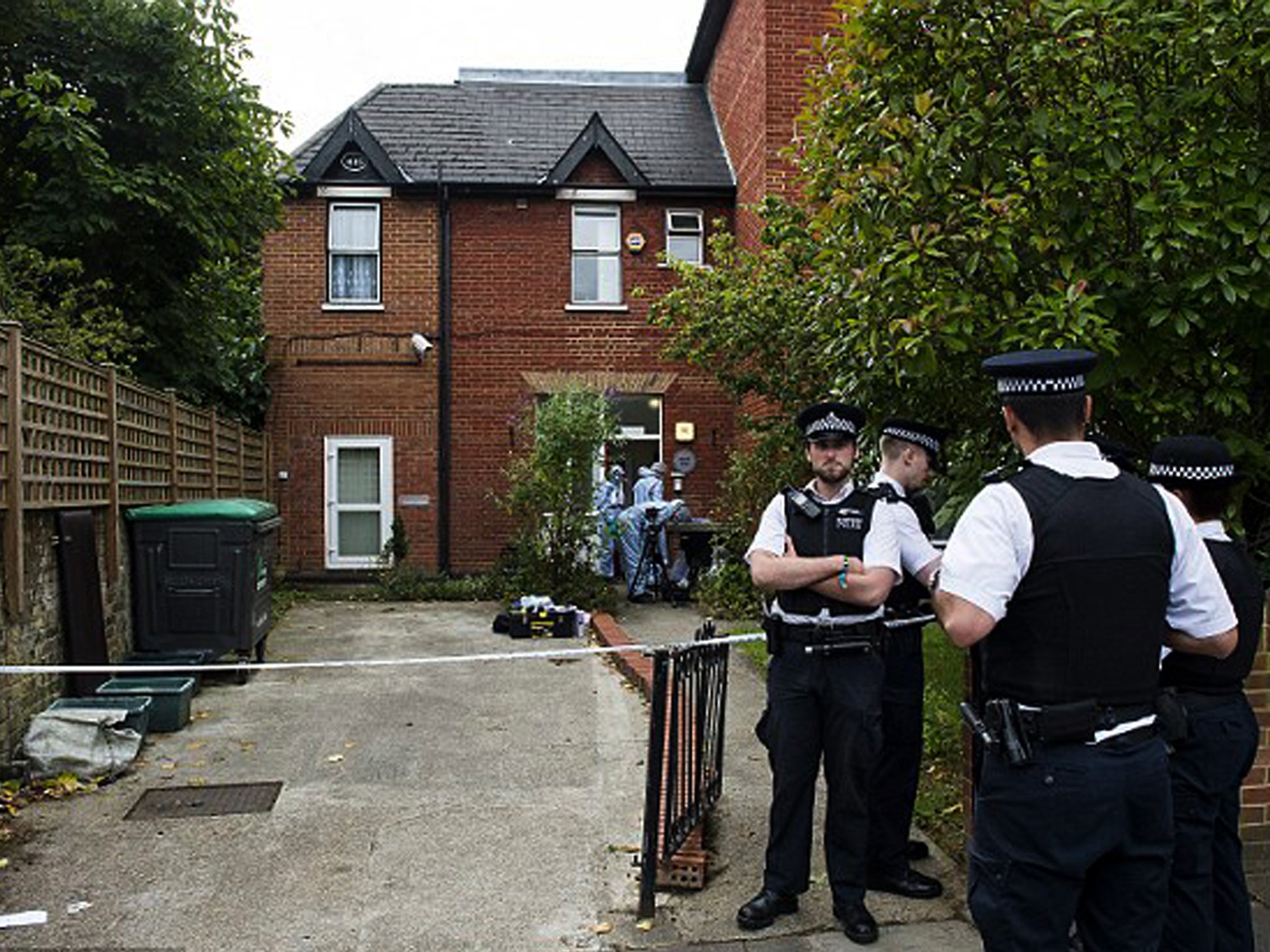Jenny Foote: Report on care worker’s murder to be withheld, health bosses say
Tribunal under fire for allowing release of troubled patient from hospital unit to hostel

A controversial report into how a violent, mentally disturbed patient was released from NHS care to a charity-run housing project where he battered a care worker to death with a fire extinguisher should be kept secret, health service bosses have said.
Michael Meanza was freed from Butler House, a men’s pre-discharge unit at Ealing Hospital run by West London Mental Health NHS Trust (WLMHT), in April last year, after a mental health tribunal deemed him well enough to be conditionally discharged.
Despite being the subject of a hospital order since the 1990s, and with a history of assaulting staff and patients, Meanza was sent to Collette House in Acton – mental health accommodation run by London Cyrenians Housing. It was there he bludgeoned 38-year-old Jenny Foote after she objected to him playing rock music at full volume in the early hours of the morning of 7 July last year.
Ms Foote had threatened to evict Meanza, 47, from the hostel and said that he would be stopped from seeing his girlfriend.
Sentencing him to life imprisonment at the Old Bailey this month, with a minimum term of 24 years, Judge John Bevan QC said he had no doubt that Meanza would be an “on-going danger”. He said that the parole board would have to think “long and hard” before considering him for release.
The judge highlighted Meanza’s violent past – 16 previous convictions for 79 offences, mainly in the 1980s and 1990s, which included an assault on a member of hospital staff and an assault on a female patient on a psychiatric ward after she refused to perform a sex act on him in exchange for cigarettes – but said it was a question for others whether the hostel had been an appropriate place for him.

In mitigation, Bernard Richmond QC, defending, said: “It would be easy to demonise Mr Meanza and label him as Mr Angry. That would be too simplistic.
“Whether Collette House was the appropriate place for a man with his difficulties is a question others will have to ask themselves. The reality was a woman who should not have had to deal with a man like Mr Meanza alone was in a position where she had to do just that.”
Speaking outside court following the verdict, Ms Foote’s brother, Michael, criticised the authorities who decided to house Meanza at the Collette House hostel.
“It’s quite clear lessons need to be learned”, he said. “They knew what he was capable of and we also know from the evidence which was given he knew how to play the system. So maybe he should have been in a more secure environment, given the way he was put in Collette House.”
A former manager with London Cyrenians Housing has claimed that more could and should have been done to prevent Ms Foote’s murder.

“Staff were saying to the management team for weeks before [the murder], that this man was extremely dangerous and psychotic, he was making threats to kill a member of staff,” the former LCH employee wrote in an anonymous letter to The Independent on Sunday.
“The staff, and in particular Ms Foote, have been completely let down by the management team. The warnings were there and no one listened to the staff.”
The former LCH manager claimed the charity has done nothing to improve safety following Ms Foote’s murder and that Collette House “has not changed any aspect of working practice” following her death.
The letter also makes a number of other accusations about LCH, saying that managers rarely visit staff on projects and that “severe staff shortages mean that staff are being put at risk”. It also says, “... managers are unable to guarantee the safety of staff who express that they are in fear for their safety and are demoralised.”
The charity did not respond to questions.
Following the murder, WLMHT commissioned a “multi-agency serious untoward incident review” which it said was “chaired independently”. The trust itself was the lead agency for the review.
A spokesperson for the trust said that a summary of “lessons learned” had been circulated internally to relevant parties but that it would not be releasing details of the findings to the public.
Paul Gallagher’s reporting on the West London trust has resulted in his nomination for Science and Health Journalist of the Year for 2015 at this week’s Society of Editors Press Awards
